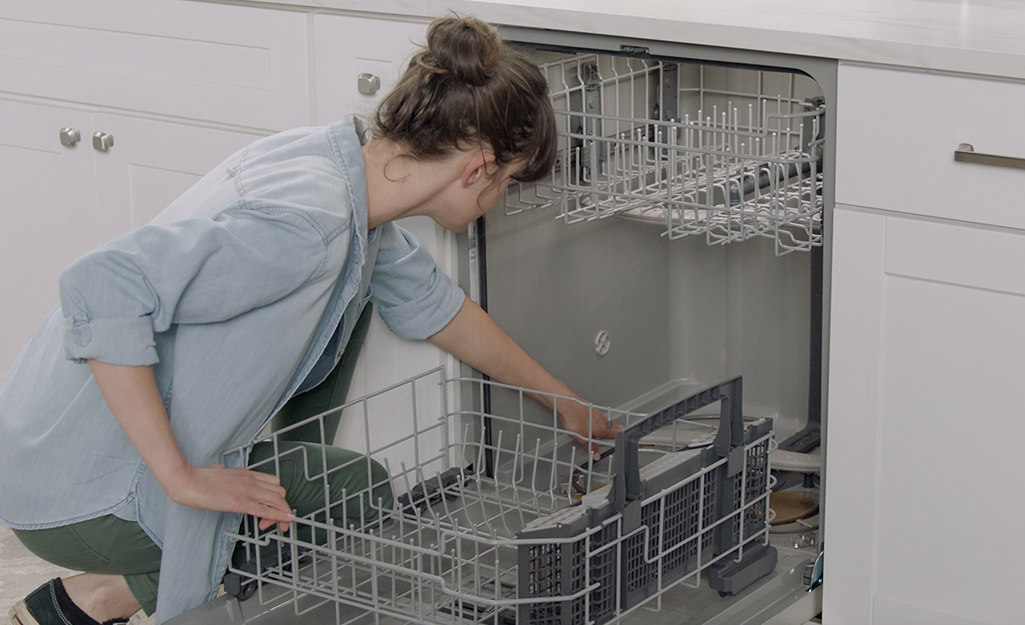What to Identify Issues with My Dishwasher: Useful Tips
What to Identify Issues with My Dishwasher: Useful Tips
Blog Article
Presented here below you might get more first-rate advice regarding How to Troubleshoot & Repair a Dishwasher.

Having your dish washer break down or breakdown can be a big deal and trigger some discomfort in the house. Dishwashing machines are machines that we make use of to tidy recipes and also flatwares automatically to conserve us the stress of by hand doing it.
Like every other maker that eases human effort, dishwashing machines can break down as well as develop some fault at some time in time. There are numerous faults your dishwasher could establish, and while some of them can be addressed by replacing some parts or fixing them, other more extreme issues will certainly need that you get a brand-new dishwasher.
This write-up will identify a few usual faults your dishwasher could establish to hinder its total efficiency and exactly how these faults can be addressed.
Usual Faults
Usual dish washer faults could vary from small to significant ones. Depending upon the level, you will either require the services of specialist plumbing professionals to fix or replace it.
A few of the most usual faults include:
Leaking Dishwasher
This is possibly the most everyday dishwasher problem, and the bright side is that it is very easy to recognize. Leakages occur due to several reasons, and also the leaks can bungle your kitchen area. Typical root causes of dishwasher leaks consist of;
If your dishes and cutleries appear of the dishwashing machine and also still look dirty or unclean, your spray arms might be an issue. Oftentimes, the spray arms can get clogged, as well as it will require a fast tidy or a replacement to work successfully once more.
Inability to Drain
Often you may observe a big quantity of water left in your tub after a laundry. That is most likely a water drainage issue. You can either inspect the drain hose for damages or obstructions. When unsure, get in touch with an expert to have it examined and also dealt with.
This is one more common dish washer problem, as well as it is primarily caused by food particles or grease remaining in the equipment. In this instance, seek these bits, take them out and also do the meals without any dishes inside the device. Wash the filter completely. That will assist eliminate the negative smell. Make certain that you get rid of every food bit from your meals before moving it to the equipment in the future.
Conclusion
Several of these typical dishwashing machine faults can be dealt with conveniently at home, however in some cases, the faults could be enormous as well as might call for the focus of professionals. If you stay in Rochester, Syracuse, as well as various other parts of America, allowed the specialists effectively diagnose what could be incorrect with your dishwashing machine and extend an option.
We also mount dish washers if you simply bought a new one or intend to replace your own. With our years of experience in the industry, we are sure to provide you the very best feasible solutions.
Dishwasher Won’t Drain? 8 Steps to Fix It
Run the Disposal
A full garbage disposal or an air gap in a connecting hose can prevent water from properly draining out of the dishwasher. Simply running the disposal for about 30 seconds may fix the issue.
Check for Blockages
Check the bottom of the dishwasher to make sure that an item or pieces of food haven't fallen from the rack to block the water flow.
Load the Dishwasher Correctly
Make sure you’re loading the dishwasher correctly. Read the manufacturers’ instructions or owner’s manual for tips and directions on how to load dishes for best results.
Clean or Change the Filter
You may have a clogged dishwasher filter that’s preventing water from draining. Many homeowners don’t realize that dishwasher filters need to be cleaned regularly. Check your owner’s manual to see where the filter is located on your dishwasher, and for instructions on how and when to clean it. For many dishwashers, the filter can be found on the inside bottom of the appliance.
Inspect the Drain Hose
Check the drain hose connecting to the sink and garbage disposal. Straighten any kinks that you may see, which could be causing the problem. Blow through the hose or poke a wire hanger through to check for clogs. Make sure the hose seal is tight, too.
Try Vinegar and Baking Soda
Mix together about one cup each of baking soda and vinegar and pour the mixture into the standing water at the bottom of the dishwasher. Leave for about 20 minutes. If the water is draining or starting to drain at that time, rinse with hot water and then run the dishwasher’s rinse cycle. That may be enough to help loosen any clogs or debris that are preventing the dishwasher from draining properly.
Listen to Your Machine While It's Running
Listen to your dishwasher while it’s running a cycle. If it doesn’t make the usual operating sounds, particularly if it’s making a humming or clicking noise, the drain pump and motor may need replacing. If this occurs, it may be time to call a professional for help.
https://www.ahs.com/home-matters/repair-maintenance/how-to-fix-a-dishwasher-that-is-not-draining/

I am very intrigued by The Most Common Dishwasher Problems and I hope you appreciated my post. Do you know about somebody who is enthusiastic about Common Dishwasher Problems? Be sure promote it. Thanks for your time. Kindly check up our blog back soon.
Avoid further plumbing damage; call. Report this page